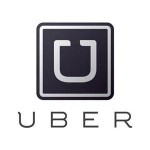France moves to ban Uber while homegrown ridesharing service BlaBlaCar continues to grow.
With that backdrop, let’s take a look at France and Uber.
The French government recently declared that some of Uber’s services would be banned in 2015. Like many places, there are some consumer protection rationales.
““Currently, those who use UberPop are not protected in case of an accident,” Mr. Brandet told the French news channel BFM TV, on Monday. “So not only is it illegal to offer the service, but for the consumer, it’s a real danger.””
Anyone anywhere who has ever taken a licensed cab knows this is silly. The real answer? Regulation and protection of a local cartel.
“Critics contend that the service represents unfair competition for other taxi operators, and falls afoul of many licensing rules across Europe. That has led cities across Europe, including Brussels and Berlin, to outlaw the budget car service.”
But what happens if a local company makes good?
“The 28-year-old student is one of a growing number of people across France relying on ride-sharing to travel long distances. Driving the change is a homegrown startup called BlaBlaCar that is challenging state-run railway monopoly SNCF by creating an alternative transport network out of empty car seats.”
Is longer distance safer? What about how everyone loves European trains and how every U.S. city wishing to be considered “world class” wants more trains?
It turns out that when given a choice, people prefer not to take public transportation.
“BlaBlaCar’s ascent has come partly on the back of a deteriorating public-transport system across the continent.”
Even better:
“Its business model responds to the flaws in train travel his association has been complaining about for years: high prices and bad service . . .”
It makes you think that maybe a homegrown company has advantages over a foreign company providing what the local authorities cannot.
Or maybe they simply don’t like it when people make money in an unregulated environment.
“Because it keeps fees so low that drivers are sharing costs rather than making profit, the company argues it is quite different from a company like Uber, which also uses some nonprofessional drivers and bills itself as “ride-sharing.”
“There has been such a hijacking of the word ‘ride-sharing,’ ” said Mr. Brusson. “The key is about the driver not making a profit, and the driver going to his destination anyway.””
And yet, BlaBlaCar has business aspirations, as long as the drivers don’t make money.
“BlaBlaCar was originally called covoiturage.fr—simply the French word for “carpooling”—but its founders changed the name to BlaBlaCar to ease international expansion with a non-French brand they could own.”

